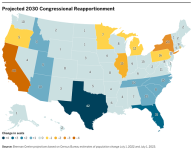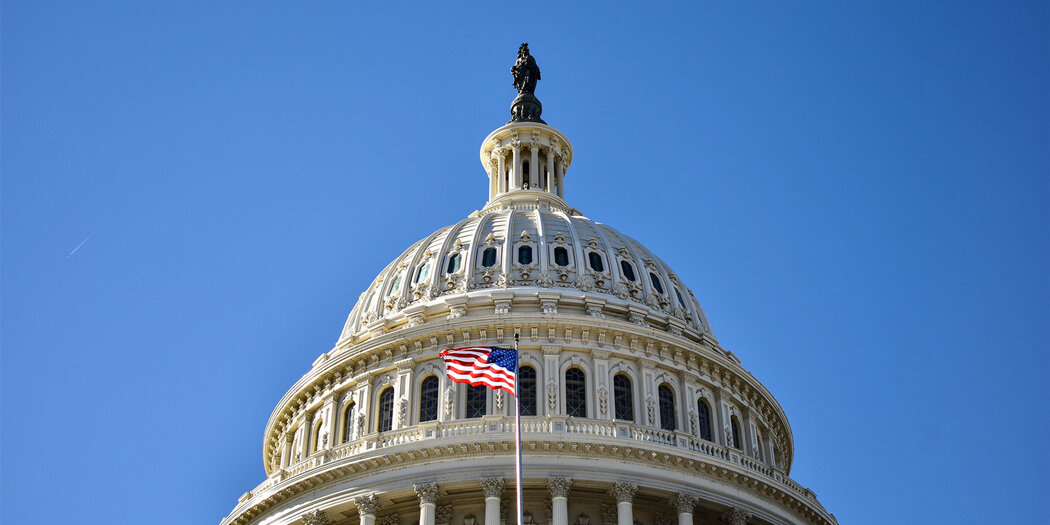- Joined
- Feb 25, 2018
- Messages
- 17,842
- Reaction score
- 8,695
- Location
- Silicon Valley, CA
- Gender
- Male
- Political Leaning
- Conservative
Democrats have long predicted that demographic trends will make it increasingly difficult for Republicans to win at the national level. The reverse may be more true thanks to people fleeing blue states for red ones, and blue states having higher population growth rates.
Due to an undercount in the 2020 census, red states were allotted 2-3 fewer seats than they should have had. That could have been a bone of contention had Harris won the election by 1 or 2 EVs. Fortunately that did not happen and Trump comfortably won both the EV and PV by a comfortable margin.
It would seem that mistake is going to be corrected in 2030. This is the first Census that will not use mass questionnaires mailed out to most American households. Instead they will use a variety of methods, including SS and IRS records. It will hopefully be the most accurate census in US history. And that may not be good news for Democrats.
Here are the states predicted by the Census to lose and gain seats:
Losers
California: -4
New York: -3
Illinois: -2
Oregon, Minnesota, Michigan, Pennsylvania, Rhode Island: -1
Total: -14
Winners
Texas: +3
Florida: +2
Idaho, Utah, Arizona, Tennessee, North Carolina, South Carolina, Georgia: +1
Total: +14
If you count MI and PA as blue states (even though they went for Trump in 2024), that's -14 EVs lost for the blue states and +14 added to red states. Since the Electoral College is a zero-sum game, that's a potential 28 electoral vote switch from blue states to red states!
If the predicted 2030 census had been in effect in 2024, Trump would have gotten +12 more EVs and the totals for Trump-Harris would be 313-214 instead of 301-226. In other words, a 99 vote difference instead of 75 votes.


 www.brennancenter.org
www.brennancenter.org
Due to an undercount in the 2020 census, red states were allotted 2-3 fewer seats than they should have had. That could have been a bone of contention had Harris won the election by 1 or 2 EVs. Fortunately that did not happen and Trump comfortably won both the EV and PV by a comfortable margin.
It would seem that mistake is going to be corrected in 2030. This is the first Census that will not use mass questionnaires mailed out to most American households. Instead they will use a variety of methods, including SS and IRS records. It will hopefully be the most accurate census in US history. And that may not be good news for Democrats.
Here are the states predicted by the Census to lose and gain seats:
Losers
California: -4
New York: -3
Illinois: -2
Oregon, Minnesota, Michigan, Pennsylvania, Rhode Island: -1
Total: -14
Winners
Texas: +3
Florida: +2
Idaho, Utah, Arizona, Tennessee, North Carolina, South Carolina, Georgia: +1
Total: +14
If you count MI and PA as blue states (even though they went for Trump in 2024), that's -14 EVs lost for the blue states and +14 added to red states. Since the Electoral College is a zero-sum game, that's a potential 28 electoral vote switch from blue states to red states!
If the predicted 2030 census had been in effect in 2024, Trump would have gotten +12 more EVs and the totals for Trump-Harris would be 313-214 instead of 301-226. In other words, a 99 vote difference instead of 75 votes.


How Congressional Maps Could Change in 2030
Newly released data from the Census Bureau points at big shifts in state representation in the House after the 2030 census.
Last edited:



